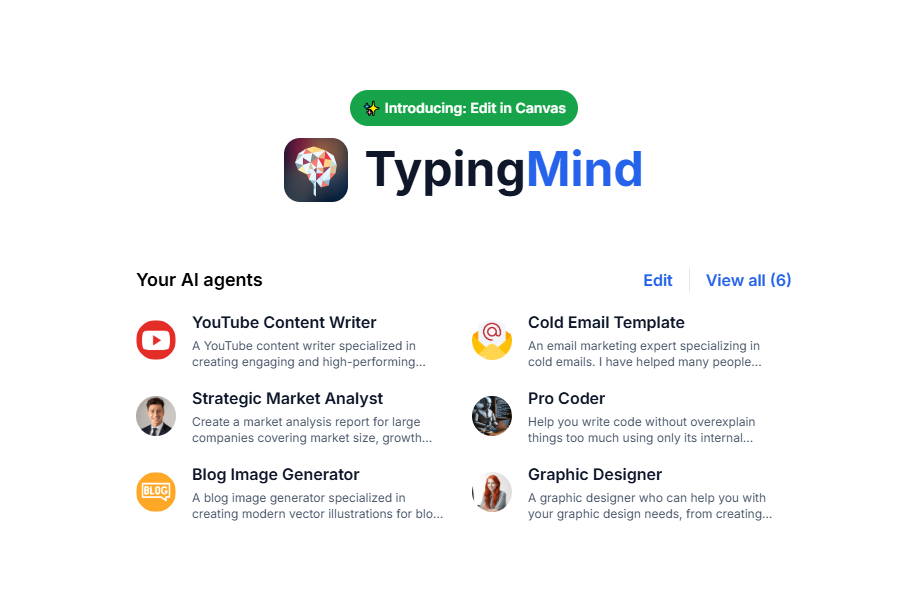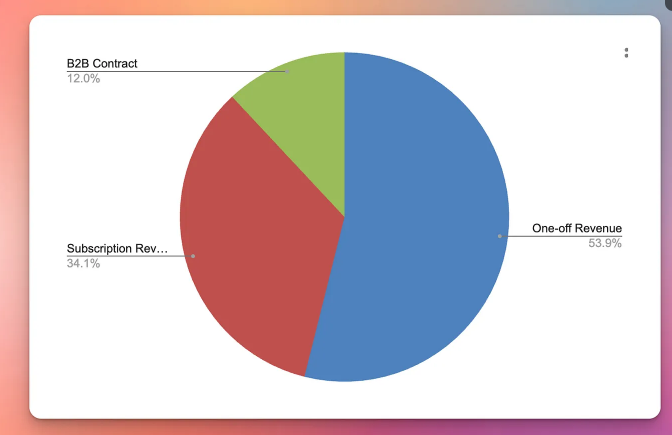TypingMind, a third-party ChatGPT enhancement tool created by independent developer Tony Dinh, has achieved impressive results in just 20 months, surpassing $1 million in annual revenue. It supports a variety of large models, provides convenient chat sessions, multi-session management, prompt templates and other functions, and supports privatized deployment, focusing on user data privacy. This article will delve into TypingMind’s success and its strategies in business model, market expansion and compliance.
TypingMind is a third-party tool designed to provide users with a better ChatGPT experience. Created by independent developer Tony Dinh, it supports a variety of large models, including OpenAI's GPT and Anthropic's Claude. It has basic functions such as chat sessions, multi-session lists, and prompt templates, and does not require downloading and installation, making it easy to use.

This tool also supports privatized deployment and provides data privacy protection. Its business model includes paid license keys, cloud data storage services and paid private deployment services. Such a "shell" product has already achieved the milestone of earning US$1 million in revenue.
Recently, entrepreneur Tony Dinh officially shared the significant progress his company TypingMind has made. Since its launch in March 2023, TypingMind has achieved $1 million in annual revenue in just 20 months. Tony said that this milestone is the result of the hard work of him and his team and makes him very proud.
TypingMind initially launched as a one-time purchase, but Tony came to realize the importance of growing a subscription business. In order to push more users to switch to the team version and build an internal AI platform, he spent a lot of time on market expansion. At present, although one-time income still accounts for the company's main source of income, this part of income only accounts for about 50% of the total monthly income. Tony believes this change will help achieve more stable cash flow and customer relationships.

In order to better conduct B2B business, Tony started video conferencing to build deep relationships with customers. Although this sales method has a long cycle, often taking several months, once successful, the value of the contract and the stability of the customer make it worthwhile. His team made some important progress in the sales process, successfully signing a number of large deals including a 3,000-seat contract.
During his interactions with clients, Tony realized that he still had room for improvement in establishing deeper personal connections with his clients. He plans to recruit a professional salesperson to handle customer communications in the future so that he can focus on the product itself and its related issues. At the same time, Tony also plans to promote TypingMind to his home country of Vietnam, although he knows that local large companies are usually slow to accept new technologies.
In order to expand market share, Tony explored a model of cooperation with dealers. By partnering with local dealers who understand the market, TypingMind is able to serve more companies, especially those that are not familiar with AI technology. This cooperation model has already been successful in some regions, and Tony looks forward to further expanding this cooperation network.
In order to ensure a smooth B2B business, Tony has spent more than 20,000 US dollars on compliance certifications in the past few months, including important certifications such as SOC2, HIPAA and GDPR. These efforts are aimed at enhancing TypingMind's professional image and enhancing customers' trust.
Blog: https://news.tonydinh.com/p/nov-2024-my-first-million
Product entrance: https://www.typingmind.com/
Highlights:
TypingMind successfully achieved $1 million in annual revenue within 20 months.
The company signed multiple large-scale B2B contracts and launched a new business model.
To run his B2B business smoothly, Tony invested in multiple compliance certifications.
TypingMind's successful case provides valuable experience for other AI tool developers. Its business model transformation, market expansion strategy and emphasis on compliance are all worth learning from. In the future, as TypingMind continues to develop, I believe it will occupy a more important position in the AI market.